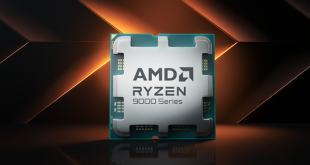In what seems a clear violation of Intel's NDA for Haswell, NEC has launched its next generation laptop far too early. Now that the details are out on the web, it's hard to know what will prevent other system builders from following suit. If the info is in the public domain from a $ 35 billion corporation, what will hold smaller companies back? KitGuru ponders the release and its implications.
The reason why companies implement NDAs (non-disclosure agreements) is to control information flow before a certain date.
A company like Intel would say to the world's press & customers, “Please do not share X, Y or Z details before <date>”.
While various news outlets across the planet love nothing better than circumventing this kind of restriction, when it is implemented properly, it means that ‘news' becomes ‘fresh' for everyone on the same day and it can be a very healthy thing – both for news outlets, customers and the vendors themselves.
When a smaller company makes a transgression, it's fairly easy for the vendor to slap them silly.
But what do you do if the ‘leaker' is one of your largest, global customers?
Tough question for Intel and its PR/Marketing team.
In the meantime, alongside the Haswell processor, NEC's latest Lavie 850 seems to have some neat additional technologies that might make it appealing when it officially launches at the start of June.

.
KitGuru says: We would imagine that Dell, HP etc will be burning their local Intel representatives at the stake around now for allowing the Japanese such a lead in the launch race. Expect Computex 2013 to be flooded with next generation Intel products that have been legitimately launched.
Comment below, in the KitGuru forums or join us online over at Facebook.
 KitGuru KitGuru.net – Tech News | Hardware News | Hardware Reviews | IOS | Mobile | Gaming | Graphics Cards
KitGuru KitGuru.net – Tech News | Hardware News | Hardware Reviews | IOS | Mobile | Gaming | Graphics Cards


